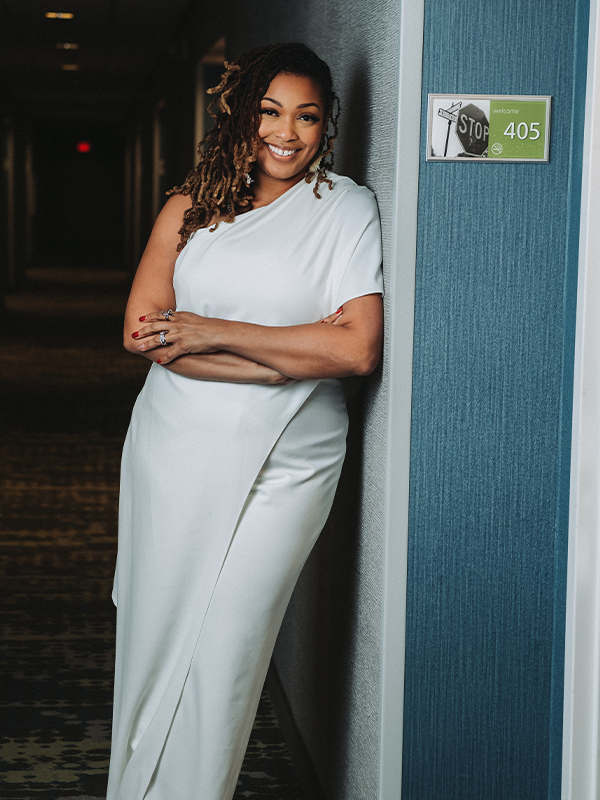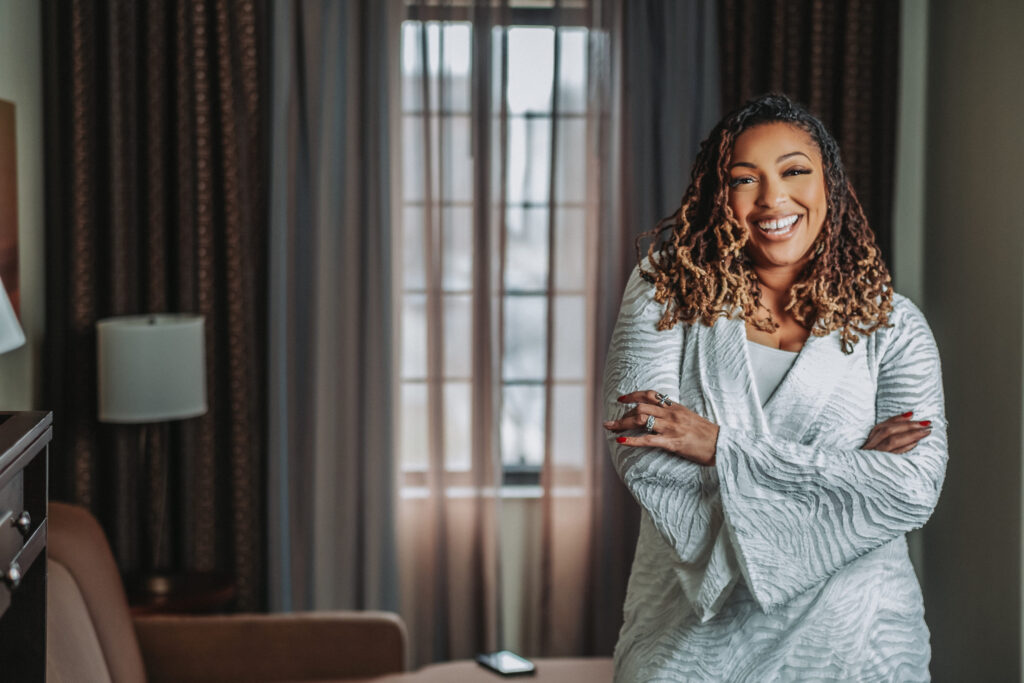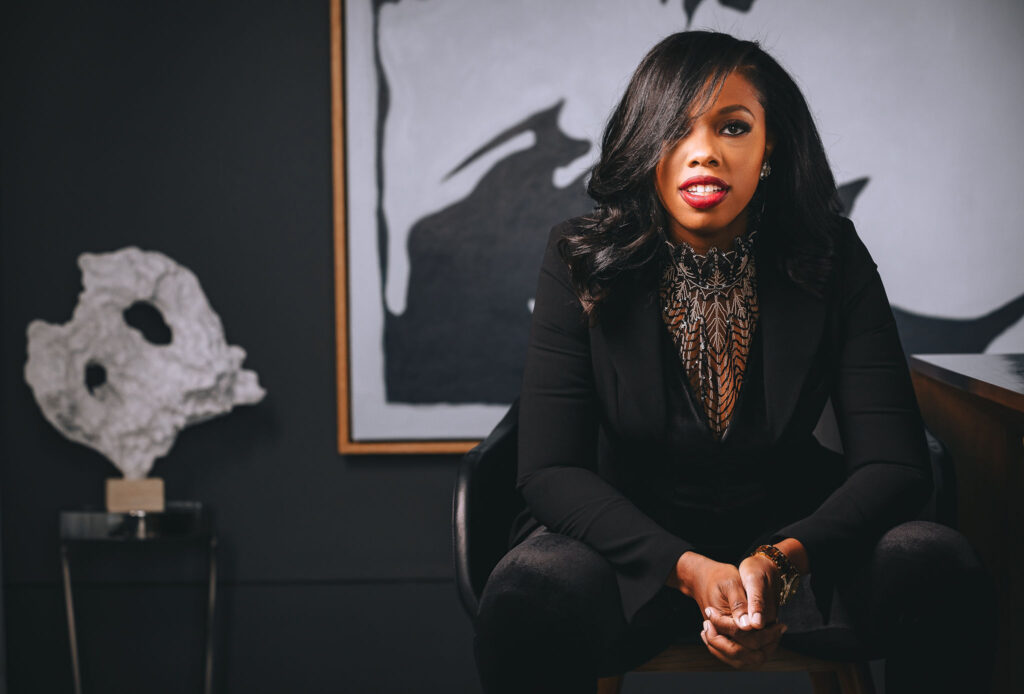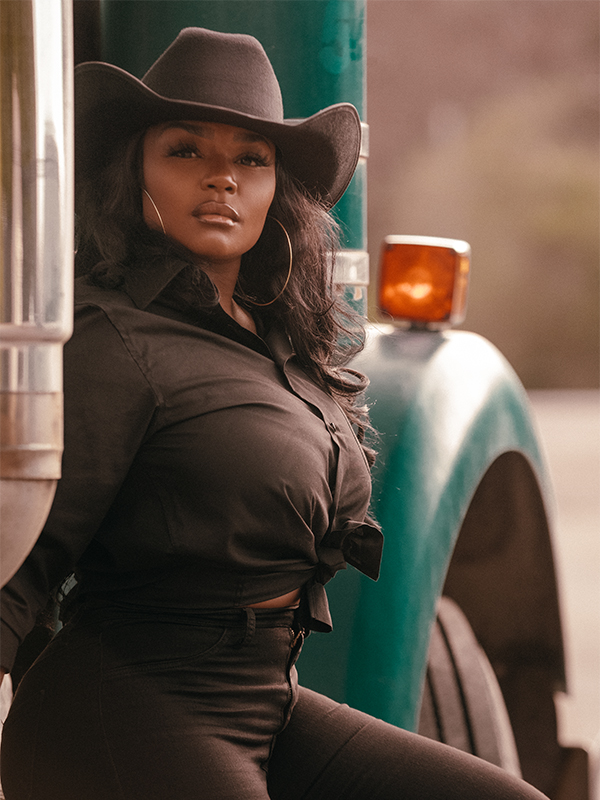When the pandemic turned the U.S. stock market upside down, Jessica Myers and Davonne Reaves were busy working on closing an $8.3 million deal with a major hotel chain. The two former college roommates, now business partners, were proof that millionaires can be made in a down economy. They now have the portfolio to prove it.
The pair became two of the youngest African American females to become franchise owners after acquiring a Home 2 Suites by Hilton in El Reno, Oklahoma. The business transaction was made through their hotel ownership platform, Epiq Collective, and aided by the partnership of Nassau Investments, a property management company. Within less than two years, Myers and Reaves added two more hotels to their ownership list.
“When the market is going crazy, that’s our Black Friday sale,” says Myers, explaining how she and Reaves were able to purchase their first property at a discount. “We were looking for a deal years before, but couldn’t find it.”
But this isn’t the only item on their agenda. As Black travel continues to soar, Myers and Reaves want to help the hospitality industry become more inclusive to better serve these consumers. The spending power of Black travelers has long been underestimated, not to mention undervalued. Black travelers contribute a significant amount to the U.S. tourism economy—$109 billion, to be exact, according to a 2019 study.
Her hotel directory, the Stay Black Experience, is one way Reaves hopes to connect Black travelers with more Black-owned and managed lodging venues.
Reaves, also the founder of hospitality firm The Vonne Group, started out working as a front desk agent at the Hyatt. Ownership in the hospitality industry is something she wants to see more people of color attain.
“In our community, when people think about owning real estate, it’s usually single or multi-family homes—no one is talking about hotels,” says Reaves. “I’ve turned my passion into a purpose, which is to help create more African American hotel owners and investors.”
Collaboration over competition
Myers knew that her partner’s 15 years experience working in the hospitality realm, coupled with her own expertise in closing residential properties, would fast-track their path to becoming hotelier mavens.
“We were two powerhouses together,” says Myers. “The magic of what Davonne [Reaves] and I have done is that we figured out that we don’t need to do everything by ourselves and that we could combine our resources.”
After leaving her job in media, Myers dabbled in a few real estate ventures—perfecting her prowess as a developer and renovator to eventually land opportunities to oversee the development of celebrity homes in Atlanta, Georgia.
But, “I knew doing single-family homes would take a long time,” she says, recounting why she decided to diversify her real estate portfolio by venturing into hotels. “My vision was 1,000 doors and I realized I was able to get further ahead with these doors [with] commercial assets.”
Navigating the challenges
Entering these doors of the hotel industry is no easy feat. Just ask Kendra Plummer, who’s had to navigate the challenges that come with being young, Black, and a woman in her short time as a hotelier and investor. Staying with her family at picturesque resorts in Barbados and Jamaica when she was a little girl opened Plummer’s eyes to cementing a career in hospitality. The 31-year-old acquired her first Georgia-based hotel—a Hampton Inn—in July last year.
“The first bump in the road came when the seller saw this was my first asset,” says Plummer. “One of the issues that we have with the Black community, and women as well, is that our net worth is not as large as our counterparts and a lot of lenders have restrictions.”
More than 59,000 hotels are in the U.S., yet less than 2% of women are at the helm, according to estimates in a report done by the National Association of Black Hotel Owners, Operators and Developers. It’s a reality that Plummer is seeking to change through her hotel advisory and education platform, Elise Capital.
“It’s about promoting collective economics within our community so that we can invest together as partners and bring back wealth,” says Plummer.
The future of the hotel industry
There’s no question that consumers have caught the travel bug. After two years of Covid-19 travel restrictions, the appetite for leisure trips has accelerated the hospitality industry into an economic reset. Global hotel occupancy has already exceeded pre-pandemic levels and bookings are on track to remain elevated through July.
As these numbers continue to soar, the importance of better attracting Black travelers—in ways such as targeted ads that equitably include their perspectives—should be top of mind. More Black hotel owners at the table will help with this, says Reaves.
She adds, “A lot of brands are putting together programs and initiatives in place to increase the percentage of African-American hotel owners, so there has been some progress.”

















